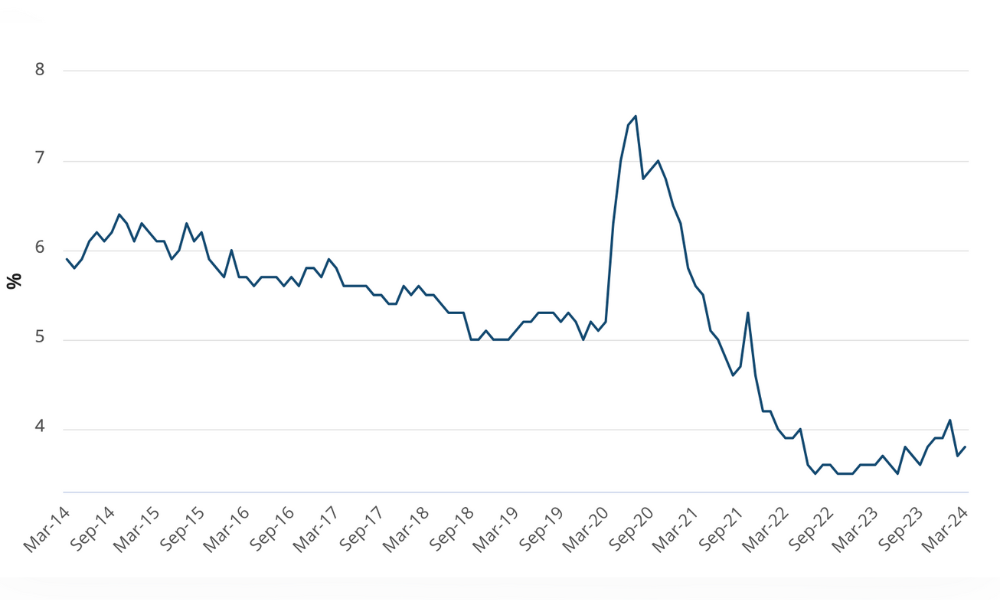The fact that something is written down doesn’t make it true. Unfortunately, this is especially true of CVs. Teresa Russell talks with two organisations that have strengthened their pre-employment screening and background checks. One has done so by choice and the other by law
The fact that something is written down doesn’t make it true. Unfortunately, this is especially true of CVs. Teresa Russell talks with two organisations that have strengthened their pre-employment screening and background checks. One has done so by choice and the other by law
Recruiters beware! Stories such as the following one related by a “friend of a friend” abound. George and Karen (not their real names) applied for a bank loan around the same time that George lost his job. When the bank called the number on George’s loan application form to confirm that the company he stipulated did employ him and that he was earning the amount he claimed, his declarations checked out and the loan was approved.
What the bank still does not know was that when they made their call, they actually spoke to George’s wife, Karen, who was definitely not an employee at George’s old company but was good at lying over the phone.
Candidates can exaggerate, massage the truth, omit damning details, tell straight out lies and commit fraud when applying for roles. Desperate employers can be less than diligent in checking references when looking for new employees to fill vacancies.
Failing to properly screen applicants in the business world might result in future financial loss. However, failing to adequately screen in the aged care industry may result in the physical, emotional or financial abuse of vulnerable elderly people.
Pushed and pulled
Ellen Flint, executive manager for people development at Benetas, one of the largest aged care providers in Victoria, explains that last year an amendment to the Aged Care Act 1997 required that all employees and volunteers with unsupervised access to clients have a police check. “We have to ensure that all employees and volunteers have ‘no disclosable outcomes’ on their police checks that would raise questions about their ability to provide unsupervised care,” she says.
Benetas employs more than 1000 staff and 600 volunteers to care for in excess of 2000 older Victorians across 26 locations. Flint says that while the aged care industry is on a boom path – with client needs becoming more complex as people live longer – it is challenging to find sufficiently skilled staff in a tight labour market and even more difficult to retain volunteers now that they are subjected to this new regulation.
Amanda Cowie, HR co-ordinator at Boehringer Ingleheim, the Australian sales and marketing arm of a global pharmaceutical company, says her company strengthened its background checking procedures in 2006.
“We wanted to do a more thorough job. We were already conducting verbal reference checks, but decided we needed to confirm that the referees were who they said they were. We also wanted to confirm driver’s licences, educational qualifications and previous employment dates and details. We thought it important that the person doing the reference checking had no vested interest in the result,” she says.
Cost of compliance
The new legislation that impacted on the aged care industry last year required employers to undertake police checks on all current volunteers. At Benetas these people had never been subjected to this sort of scrutiny before. Flint says that some older volunteers decided to stop offering their time because they were either unable or unwilling to complete the police checking process. “A lot of them found it quite confronting – as though they were being treated with the presumption that they had done something wrong,” she says.
Employees had previously undergone police checks on commencement, but Benetas now had to make sure these were repeated every three years. Apart from the police processing costs,Flint says management of this process also costs around 0.5 full-time employee (FTE) of an administrator’s wages.
“This extra cost didn’t come with any extra funding and has been a burden for not-for-profit organisations in the sector. However we can’t argue with what it is designed to achieve – the ultimate safety and confidence of our clients,” says Flint.
Vendor selection
Boehringer Ingleheim outsourced its pre-employment screening to Verify, to save time – both the time that HR spent on the process and the time it took to make a candidate an offer. “Our service agreement states that Verify must provide a minimum level of background checking within 48 hours, but our employment contracts become null and void if facts that take longer to check, such as overseas qualifications, turn out to be false,” says Cowie.
Boehringer Ingleheim chose Verify from two other providers. “At the time, they were the only ones who could tailor a package to exactly what we wanted. Their proposal was also cost effective,” says Cowie.
Flint says that Benetas struggled to find organisations that provided an online checking service with the federal police at the time they were looking for a vendor. They chose Personnel Risk Management Group (PRM) because they were the only vendors that could provide a 48-hour turnaround time. They pay the premium rate of $40 for each 48-hour police check because they want to minimise the time it takes to make an offer of employment during the recruitment process.
Outcomes
Cowie says there have been several positive outcomes from undertaking more thorough background checks. Boehringer Ingleheim employs a large sales force, all of whom should have had some sort of tertiary qualification. The company has found that those who don’t have such a background have difficulty absorbing the detailed product and disease information they need for their jobs.
“If a candidate dropped out of uni, they could very well struggle during initial training and, in turn, with the sales role,” says Cowie. “Confirming academic records has also helped us find the right person for a role,” she says. Verify has also confirmed what candidates’ current salaries are, rather than the inflated rate some claimed they were on.
Cowie was particularly pleased recently that thorough reference checking of a candidate for a senior marketing role had uncovered the real reason he left his previous employer, which was not what he had told them.
He had been “performance managed out” for not meeting his targets and objectives. “In the past, we would have just called the referees he listed on his CV, who were probably friends of his,” says Cowie. “Managers sometimes have a gut feeling about a person during an interview. Proper reference checking clarifies or confirms whether they were right,” she adds.
At Benetas, all the police checks of current staff, volunteers and new employees have picked up only one disclosable outcome on a member of staff who had had a clean record when he/she started. When the issue was raised, he/she resigned.
Tips for success
Boehringer Ingleheim has streamlined its pre-employment screening through HR,but line managers can access the online report at any time. “Your vendor must understand your needs and communicate where they are at during the whole process. You must streamline your own processes and have clear expectations of your vendor to get a good return on investment,” says Cowie.
Flint believes that organisations should create guidelines around what is included and what is excluded from background checks before introducing the process.
“There must be a clear reason for doing it and it should all tie back into the inherent requirements of the job. Be careful about the moral judgements you are making and decide if it [the disclosable outcome] is relevant to the job, what was the context and how long ago it occurred,” says Flint.
“Even within aged care, you need to make a judgement call on whether an isolated incident is truly relevant,” she concludes.








